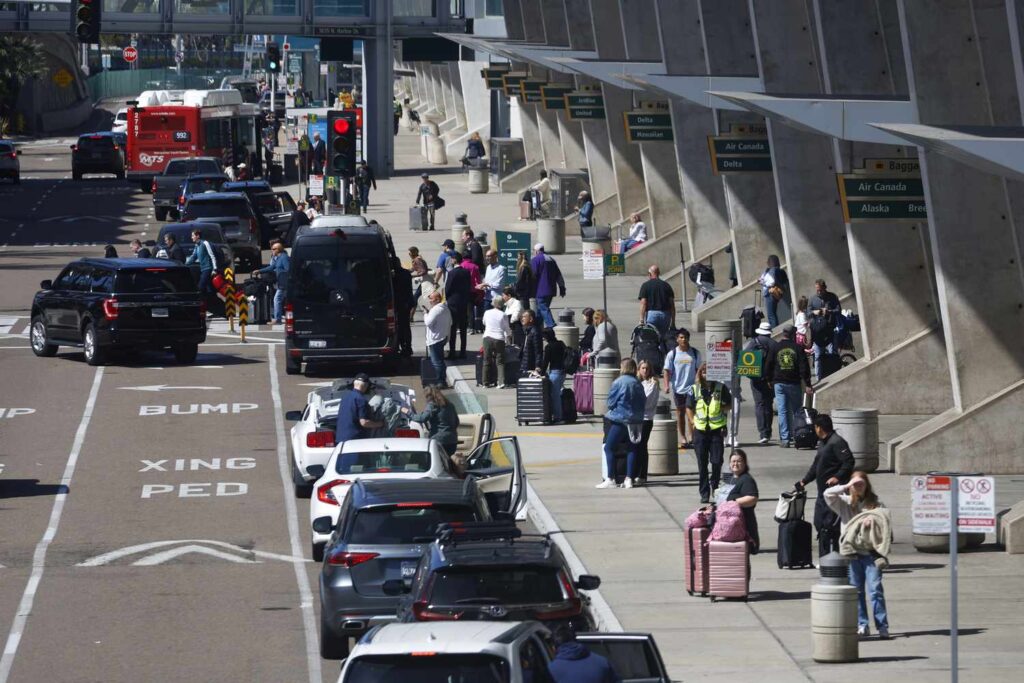Key Takeaways
- Airbnb and Expedia executives expect brisk domestic demand this winter as Americans continue to book trips.
- The latest forecasts from the booking companies come as the U.S. faces the possibility of air-travel confusion due to the government shutdown.
Vacation-rental companies like the view these days.
Strong domestic demand prompted Expedia Group (EXPE) and Airbnb (ABNB) to issue rosy forecasts Thursday. Airbnb expects fourth-quarter sales to grow 7% to 10% year-over-year, according to its letter to shareholders. Expedia raised its full-year outlook and now anticipates revenue coming in 6% to 7% above last year.
Third-quarter nightly stays in the U.S. rose by a high-single digit percentage—Expedia’s fastest growth in more than three years, the parent company of Vrbo and Hotels.com said. Reservations didn’t come from the affluent alone, but also from the “lower-end”, CFO Scott Schenkel told investors on a conference call Thursday.
Schenkel’s comments buck a trend outlined by a number of companies and analysts in recent months, with low- and moderate-income households seen curtailing their spending due to concerns about the job market and inflation and the affluent, who are benefiting from the frothy stock market, more comfortable continuing it.
What This News Means for Consumers
It’s hard to gauge how flight reductions will impact air travel rates and the broader travel industry. Experts seem to agree that significant repercussions are more likely the longer the situation persists. Given that, it may make sense to plan upcoming travel well in advance.
Airbnb reservations in North America grew by a mid-single digit percentage year-over-year in the third-quarter. The company had “meaningful acceleration” in the U.S. in part because it introduced a feature that allows consumers to pay their bill in installments, CFO Ellie Mertz told investors on a conference call Thursday.
“We’re encouraged by the continued momentum,” Mertz said, according to a transcript made available by AlphaSense. “Despite more difficult year-over-year comps, we’re seeing strength in longer lead time bookings.”
The upbeat outlooks are notable at a time when flight reductions are expected to, at least briefly, disrupt domestic travel. With the government shutdown exacerbating an air-traffic controller shortage, 40 U.S. airports began cutting capacity by 4% today and are set to reduce it by 10% by Nov. 14th, Transportation Secretary Sean Duffy said. The government will adjust capacity in response to staffing resources, and may decrease traffic by 20% if personnel becomes a bigger problem, Duffy said on Fox News Friday.
Revenue from air travel is a relatively small part of Expedia’s overall revenue, Schenkel said, telling investors the company should be able to meet its goals even if the segment underperforms.
“While we, like everyone, hope for a fast and safe resolution of the situation, no matter what, we’ll be here for our travelers,” he said, according to a transcript.
Consumer Groups Offer Ideas for Those With Air-Traffic Concerns
Several major hubs are part of the flight reduction mandate, presenting a risk of widespread disruption. The 40 airports in question accounted for nearly 69% of all passengers screened by the Transportation Security Administration in October, Deutsche Bank estimated.
Airlines will likely prioritize flying longer, more lucrative routes over regional ones, analysts said. People with upcoming travel plans may want to give themself an extra day to travel, steer clear of connecting and evening flights, and avoid using third-party booking services, according to the Public Interest Research Group. The consumer rights group has published a primer on travelers’ rights here.
Flight reductions may temporarily increase passenger revenue per available seat mile—an industry revenue metric—but will likely be a drag on profit margins, analysts said.
“If the reductions were to continue through the Thanksgiving holiday travel period, we believe that the financial impact would be significant particularly for some of the weakest carriers,” Deutsche Bank said.
This article has been updated since it was first published to add new information and context.
